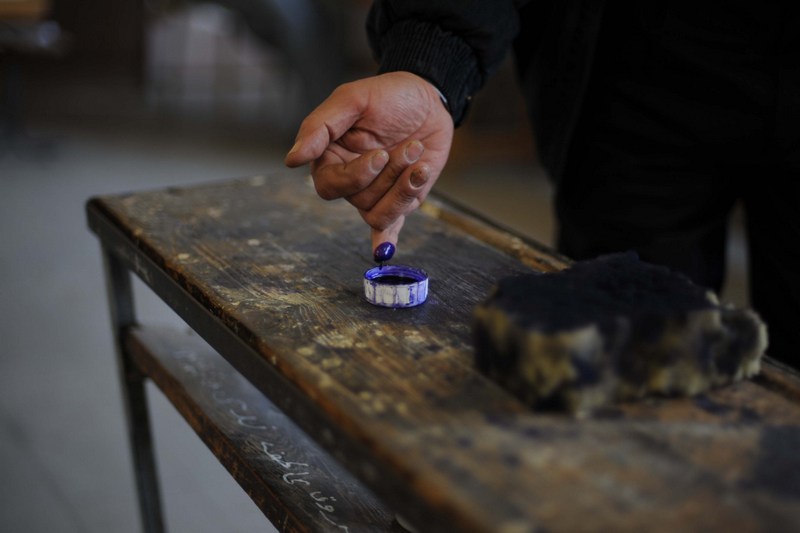By Prashant Rao / AFP
BAGHDAD: Saudi Arabia’s push to improve ties with Iraq is part of a drive to convince it to abandon the Syrian president, despite the strong influence in Baghdad of Riyadh’s foe Tehran, experts say.
In a marked warming, Riyadh has named a non-resident envoy to Iraq and Baghdad sent a security delegation to hold talks in Riyadh, to be followed by another group of Iraqi officials in coming days.
The rapprochement comes in the runup to an Arab League summit in Baghdad in late March.
Iraq is caught between calls from Arab states of the Gulf for Syria’s President Bashar Al-Assad to quit and Shia Iran’s staunch support of the Damascus regime, dominated by minority Alawites, an offshoot of Shia Islam.
“The Saudis want Iraq to be more with the Gulf countries,” said Mahmud Othman, an independent Kurdish MP. “They want to be nice to Iraq to pull it towards its position, against Iran and Syria.”
Othman characterized the Middle East as falling into two camps: Arab Sunni states and Turkey in one, and Iran and Shia factions in the other.
“Iraq will be in a difficult situation,” he said, pointing out that the country is led by its majority Shia Muslims but is also home to a substantial Sunni minority which ran the government until Saddam Hussein’s 2003 overthrow.
“Iraq will have lots of problems between going this way or that,” he said.
Saudi Arabia appointed its first ambassador to Iraq since Saddam’s 1990 invasion of Kuwait, having viewed Iraq’s Shia-led government with suspicion in the aftermath of the dictator’s ouster in a US-led invasion.
Iraqi Prime Minister Nouri Al-Maliki himself has a history of rocky relations with Saudi Arabia, which was widely seen to have backed his rival Iyad Allawi for the premiership after 2010 parliamentary elections.
Despite that, the two countries have moved to tighten cooperation on security issues, with Iraq’s deputy interior minister, Adnan Al-Assadi, on Wednesday hailing early signs of an improvement.
He said he was “very optimistic that this cooperation will be the beginning of a new phase of openness between the two countries on political, economic and security issues.”
The improvement, however, still leaves Riyadh lagging far behind Tehran in the race for influence in Iraq.
Along with their common Shia heritage, with millions of pilgrims visiting religious sites in each other’s country, Iraq shares its longest border with Iran and the two states are major trading partners.
Iran also gave refuge to many Iraqi politicians during Saddam’s rule.
“Saudi must travel enormous distances to catch up with Iran in Iraq,” said Reidar Visser, editor of the Iraq-focused website www.historaie.org.
“Iraq will exploit warming ties for what it may be worth and could even use them to acquire some more distance from Iran. But Saudi will never play the powerbroker role that Iran has enjoyed in Iraq.”
Othman agreed, saying: “Iranian influence in Iraq is well dug-in. It is quite strong, it has been there since the days when the opposition was exiled there (under Saddam).”
“Saudi Arabia could have good relations with Arab Sunnis in Iraq, but not more,” he continued. “They cannot counterbalance Iranian influence in the current Iraq. Iranians have the upper hand.”
According to Iraqi political commentator Tariq Al-Maamuri, the push by Saudi Arabia to improve ties is a belated recognition that “Iraq has begun to restore itself.”
“Iraq will play a role in the Arab and regional world, and internationally, and the Saudis cannot neglect that anymore,” Maamuri said.
Others, however, have questioned whether there are any strategic implications at all for Riyadh’s February 20 appointment of a non-resident ambassador.
“I personally don’t think it’s sort of a definitive rapprochement by any means,” said a Western diplomat, speaking on condition of anonymity.
“I think there is still a huge, huge amount of mutual distrust and suspicion. I think it’s a positive move, but I think it is tactical, not strategic.”
The diplomat said the move was likely more to do with Riyadh “wanting to have a coherent position for the (Arab) summit, where they can send an ambassador to the summit.”
